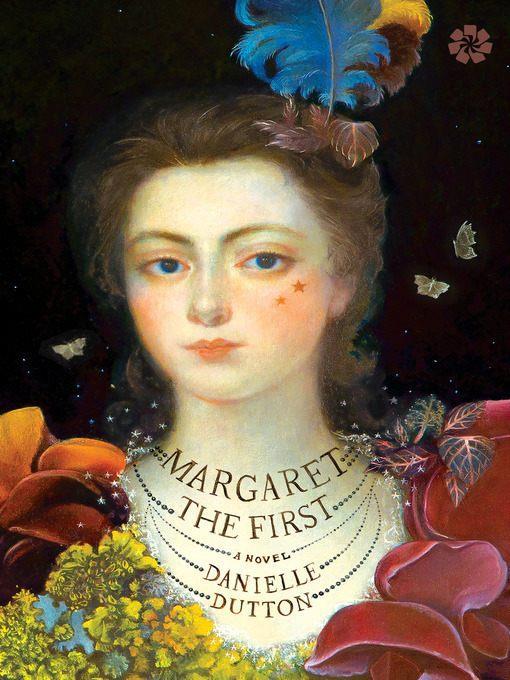
Margaret the First
A Novel
کتاب های مرتبط
- اطلاعات
- نقد و بررسی
- دیدگاه کاربران
نقد و بررسی

Starred review from January 18, 2016
Dutton’s remarkable second novel is as vividly imaginative as its subject, the 17th-century English writer and eccentric Margaret Cavendish. Even as a shy young girl, Margaret Lucas covets fame and writes prolifically. Years later, she is an attendant to the queen, and when the English Civil War begins, Margaret flees with the court to Paris, where she meets and marries the aristocratic William Cavendish. Blossoming in an intellectual milieu that includes Descartes and Dryden, she begins to write even more seriously. Back in England after the war ends, she publishes wildly unconventional books to a mixture of admiration and scorn, refusing to write anonymously like other women of her time, or to let her lack of formal education silence her. Though Dutton doesn’t shy away from the “various and extravagant” antics (such as attending the theater in a topless gown) that earned her subject notoriety and the nickname “Mad Madge,” her Margaret is a woman of fierce vitality, creativity, and courage. Incorporating lines from Cavendish herself as well as Virginia Woolf, whose essays introduced Dutton to Cavendish, this novel is indeed reminiscent of Woolf’s Orlando in its sensuous appreciation of the world and unconventional approach to fictionalized biography. Dutton’s boldness, striking prose, and skill at developing an idiosyncratic narrative should introduce her to the wider audience she deserves.

January 15, 2016
A slim, poetic meditation on the writing life as seen through the experiences of Margaret Cavendish, Duchess of Newcastle, a 17th-century woman of letters.In the Author's Note, Dutton (Sprawl, 2010, etc.) thanks Virginia Woolf for introducing her to her subject: the Duchess of Newcastle appears in Woolf's essay of that name as well as in A Room of One's Own, Woolf's famous plea for women's economic and intellectual autonomy. Woolf hovers over this brief novel, audible in its cadences and visible in its cascading images of nature, artistry, and oddity. Margaret Lucas, a daughter of royalist gentry, is sent to sit out the English civil war as a lady-in-waiting to the English queen in Oxford: "I found myself in an unknown universe, whirling far into space: African servants, dogs in hats, platonic ideals, sparkling conversation, and ivy-covered quadrangles with womanizing captains, dueling earls, actors." The war heats up and the queen's court moves to Paris. Back home, offstage, most of Margaret's family members die in the war. She wins the heart of William Cavendish, 30 years her senior. He's a rich, intellectual marquess, quite the catch, but the Parliamentarians have confiscated his vast estates and fortune. The couple lives in exile in France and the Low Countries, where they hang out with scientists, poets, and philosophers (Descartes, Hobbes, Waller, Davenant), writing plays, poems, and treatises, until the Restoration reverses their fortunes (and for some reason the narration switches from first person to third). Back in England, now a duchess, Margaret gets weirder and weirder, all in carefully crafted, lyrical sentences. She offends the new queen by showing up to an audience in a dress with an extravagant train. When visitors come, she rants and recites at them. She wears a topless outfit to the theater, rouging her nipples. People follow her around, calling her Mad Madge. Most of all, though, she struggles to write. Despite its period setting and details, this novel--more poem than biography--feels rooted in the experiences of contemporary women with artistic and intellectual ambitions. Margaret's alternating bursts of inspiration and despair about her work may feel achingly familiar to Dutton's likely readers, many of whom will probably also be aspiring writers.
COPYRIGHT(2016) Kirkus Reviews, ALL RIGHTS RESERVED.

























دیدگاه کاربران